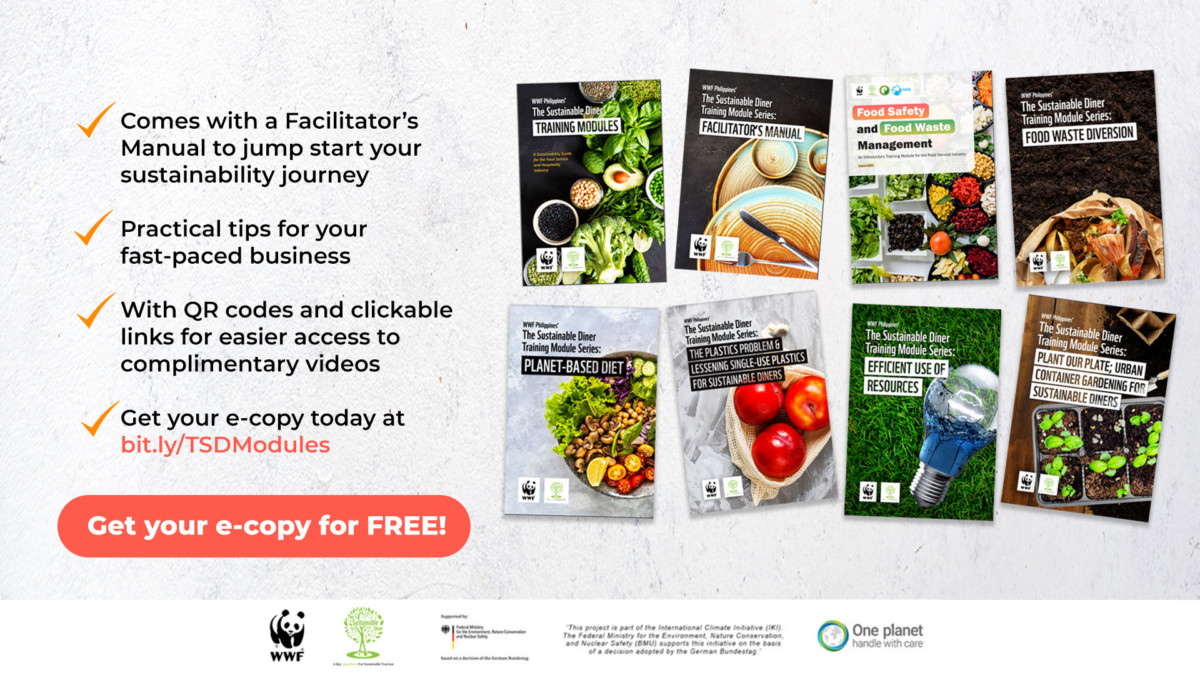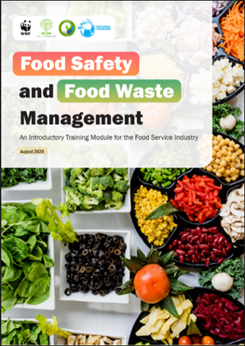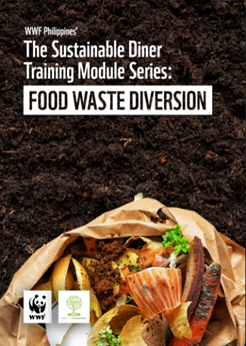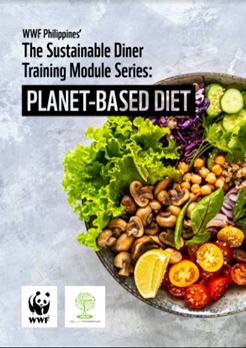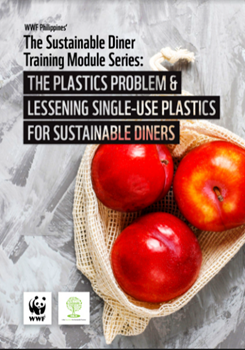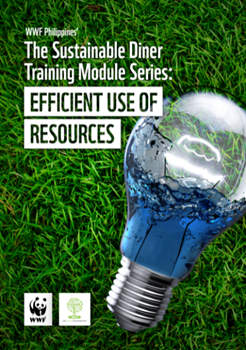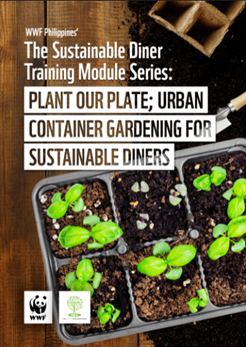The Sustainable Diner’s Guide to Green Recovery for the Food Service and Hospitality Sector
July 9, 2021
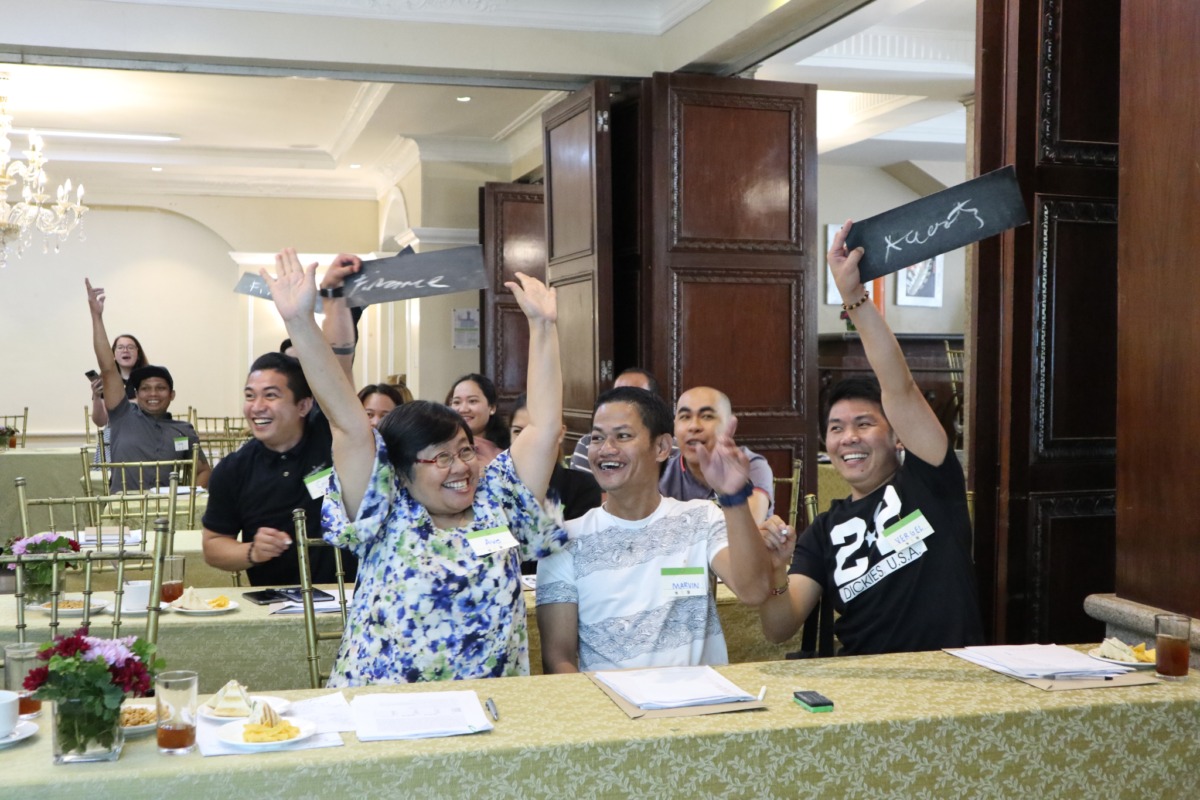
Participants having fun being competitive during one of the group games in the Serve Our Planet: Food Waste Management and Marketing Sustainability training which include representatives from the Department of Tourism - Philippines, partner restaurants and organizations in 2019.
The Covid-19 pandemic had a devastating impact on the food service and hospitality industry. These industries experienced a significant decline in growth and employment rates (Lim, 2020). Despite closures and limited operations, some enterprises survived by redefining operations and taking advantage of digital innovations. Taking all the lessons learned from the pandemic, The Sustainable Diner Project of WWF-Philippines developed training modules that highlight sustainability practices relevant to food service and hospitality establishments as they adjust to a post-pandemic economy.
WWF-Philippines’ The Sustainable Diner Training Modules: A Sustainability Guide for the Food Service and Hospitality Sector aims to assist these industries in transitioning to a better normal by promoting the five (5) sustainable dining principles - local and sustainable sourcing, efficient use of resources such as energy and water, reduction of food waste, reduction of single use plastics, and promotion of plant-based meals or less meat consumption. In these modules, business owners and employees can learn practices that optimize economic benefits while contributing to the recovery of the one planet we live in. It includes tips on how to integrate sustainability principles in their fast-paced operations. It also comes with a Facilitator’s Manual to help you jump start your sustainability journey.
Since most restaurants have embraced the digital platforms, these modules were developed as self-learning materials so restaurant and hotel employees can access them in their own time and in any available device. The materials are available in the links below. For the full playlist of training videos, go to bit.ly/TSDModules.
The Sustainable Diner Training Modules: An Introduction
| We seldom associate our food choices with the climate emergency. In this series, learn how our food choices affect our planet and watch the steps you can do to mitigate your operations’ impact. |
Introduction to Food Waste Management Module 1
Have you ever seen food wasted in your establishment? In this video, we will introduce a system to help you minimize and manage food waste generated in your operations.
Food Waste Measurement Module 2
Let us dive deeper into the food waste management system as we discuss separation, measurement, and analysis of food waste information.
Food Waste Task Force Module 3
As you prepare to start your food waste management journey, learn best practices that your establishment can apply through your food waste task force.
Food Waste Diversion
Unavoidable food waste, when thrown in landfills, emits harmful greenhouse gasses. Learn how you can prevent that through a diversion technique that fits your fast paced business.
Planet-based Diet Module 1: Planet-based Diets
More and more consumers are starting to reconnect with food, and realizing its impact, not only to our health, but also to the environment. Learn more about food that is good for the people and the planet in this video.
Planet-based Diet Module 2: Adopting a Planet-based Menu in Meal Planning
As food service establishments, you can be accountable to your consumers’ health by choosing to serve healthy and planet-friendly dishes. Learn how you can serve planet-based dishes in this video.
The Plastics Problem and Reduction of Single-Use Plastics for Sustainable Diners
Plastics serve as a great packaging solution. However, mismanagement and improper disposal leads to environmental damage. Learn more about what you can do as a food service establishment to manage plastics in your operations in this video.
Efficient Use of Resources Module: Journey of Water for Tourism
We use water in our daily operations. In this video, we will share tips on how you can efficiently use water in your establishments, generate savings, and reduce water wastage.
Efficient Use of Resources Module: Efficient Use of Energy
The gadgets, appliances, and equipment we use in our operations are highly reliant on electricity. In this video, we will share tips on how you can be a more energy-efficient establishment.
Plant Our Plate: Urban Container Gardening for Sustainable Diners
Local sourcing benefits producers, consumers, and the planet. If you have extra space and capacity in your establishment, you may explore setting up your own garden to produce fresh ingredients. Learn more about the advantages of setting up your own urban container garden and the six easy steps to do it.
References
Lim, J. A. (2020). The Philippine Economy During the COVID-19 Pandemic. Ateneo De Manila University, Department of Economics. Quezon City: Ateneo Center for Economic Research and Development. From http://ateneo.edu/sites/default/files/downloadable-files/ADMU%20WP%202020-16.pdf
The Sustainable Diner project, under Sustainable Consumption and Production, is part of the International Climate Initiative (IKI). The Federal Ministry for the Environment, Nature Conservation, and Nuclear Safety (BMU) supports this initiative on the basis of a decision adopted by the German Bundestag.
The Sustainable Diner and Soilmate Project Team
Melody Melo-Rijk, Monique Mahusay, Jonna Ellaine Jordan, Lorayne Therese Roque, Alexa Jeanne Lasch, Iris Joy Abrigo, Jenette Callada, Liezl Stuart del Rosario, Kristan Gabriel Villalon, Rina Papio, Danyelle Papio
For more information, please contact:
Melody Melo-Rijk
Sustainable Consumption and Production Program Manager
mmelorijk@wwf.org.ph
For media arrangements, please contact:
Ms. Angelica Pago
Integrated Communications Manager
09498891332
apago@wwf.org.ph
Ms. Chezka Guevarra
Public Relations, Media, and Events Assistant Manager
09276566436
cguevarra@wwf.org.ph
